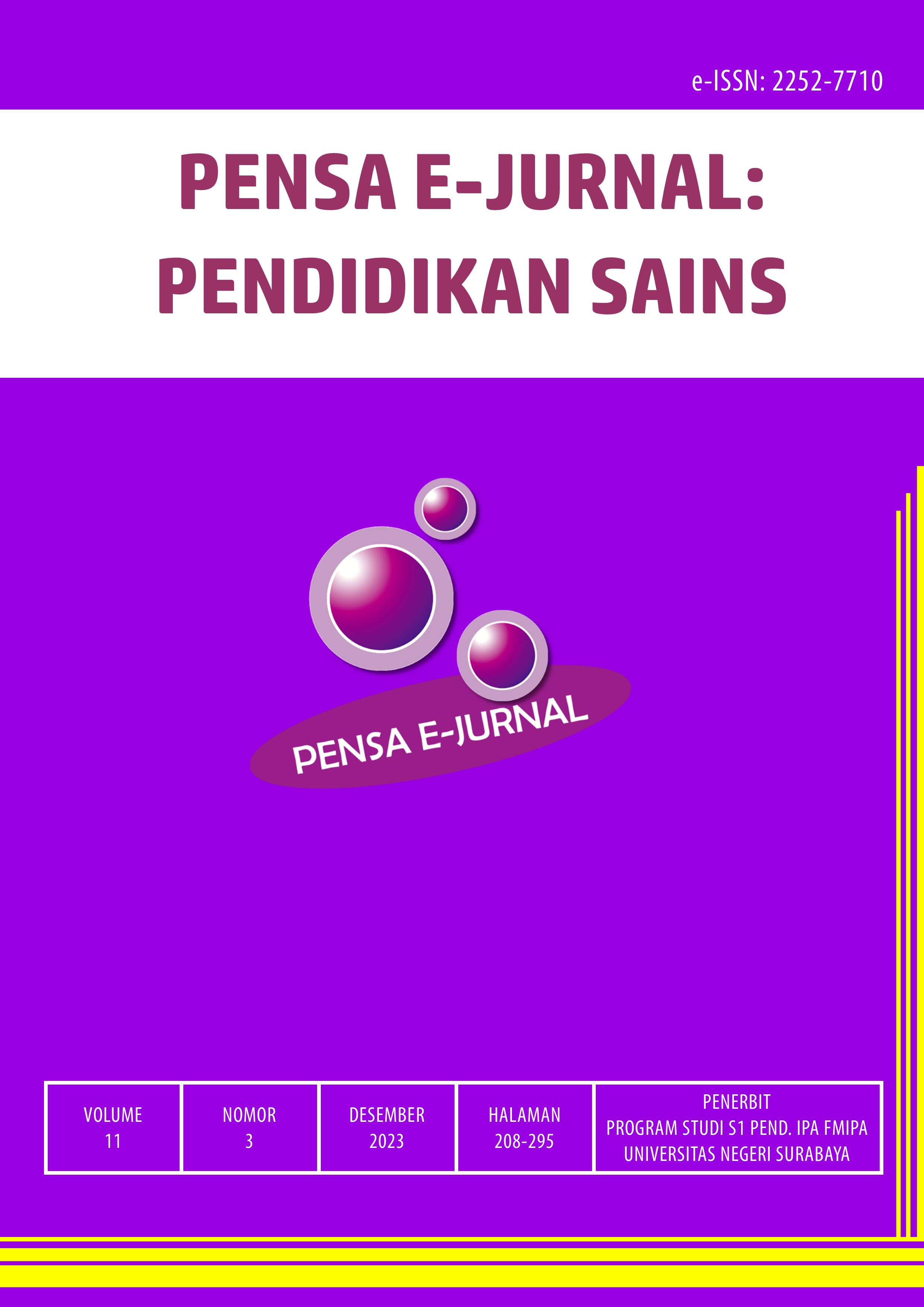ANALISIS KETERLAKSANAAN MODEL PEMBELAJARAN GUIDED INQUIRY LEARNING BERBASIS ETNOSAINS
DOI:
https://doi.org/10.26740/pensa.v11i3.54110Keywords:
guided inquiry learning, ethnoscienceAbstract
Learning is expected to provide students with the opportunity to acquire important knowledge, skills, and attitudes needed in life. The importance of providing direct experiences and practical activities in learning is to help students develop their competencies in exploring and understanding the surrounding environment through a scientific approach. The purpose of this research is to determine the implementation of guided inquiry learning model based on ethnoscience. The intervention study design was used in the research with 32 participants involved, who were eighth-grade students at one of SMP in Sukoharjo. The data collection technique used was observation with an implementation sheet. The results obtained from the two meetings were carried out very well. The ? score obtained indicates a good agreement relationship between the two observers. In student activities that were often observed by the observer, they investigated scientific phenomena and conducted experiments. Learning activities with guided inquiry learning model based on ethnoscience, students can learn about science and technology used in playing gamelan as well as appreciate the diversity of Indonesian culture. A culturally responsive science learning model can be a good choice for teachers in teaching Science because it can facilitate students to better understand the learning materials.
Downloads
Downloads
Published
How to Cite
Issue
Section
 Abstract views: 210
,
Abstract views: 210
, PDF Downloads: 237
PDF Downloads: 237

















